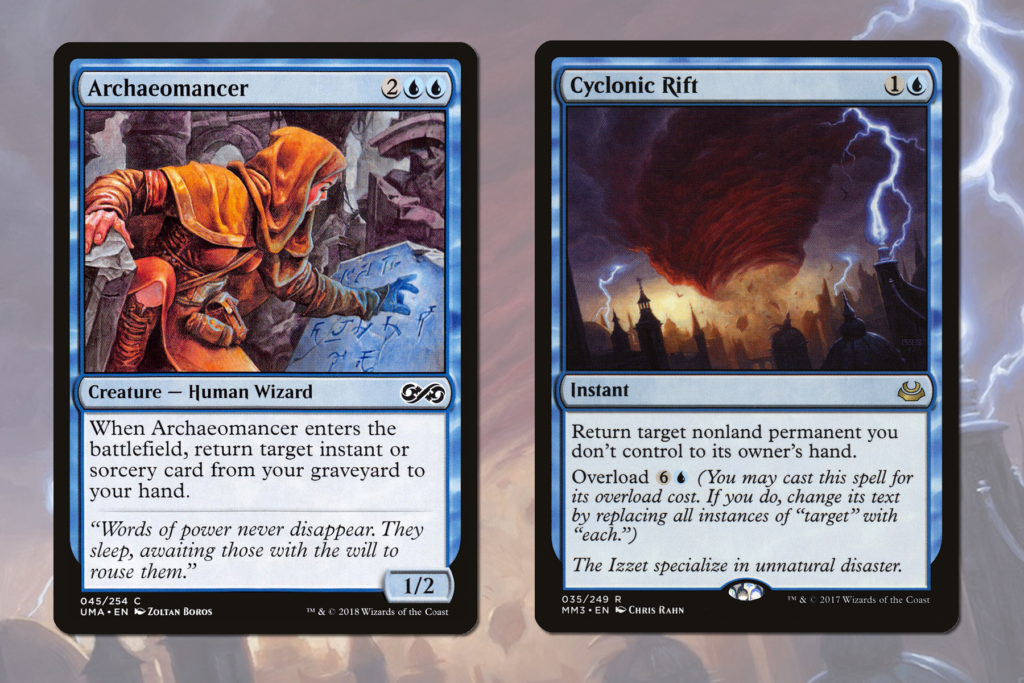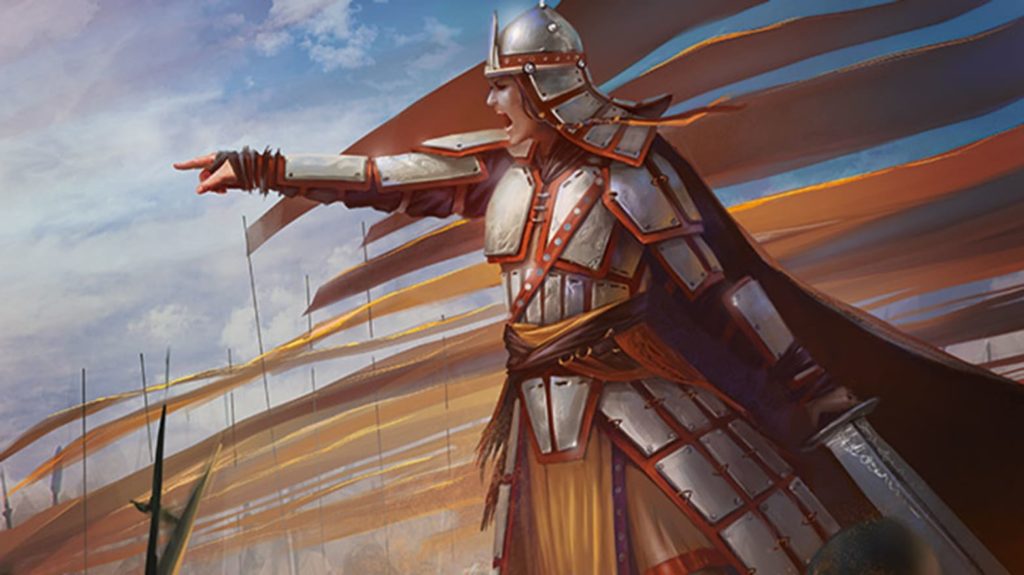Welcome to Legion’s Landing, my new monday Commander column on Hipsters of the Coast! Like the vanguard from Torrezon, we plan to chart a course through the bountiful expanse of the Commander format. And like the Boros Legion, we aim to be fair and inclusive, and cover both beginner friendly & budget content, through to deep dives and more in-depth philosophy. My name’s Kristen, and you can find my previous work on Master of Magics, where I’ve written a bunch on Commander and Limited. I’m excited to embark on a new chapter here at Hipsters of the Coast, and I welcome you along for the journey.
There’s a question I’ve been asked recently from less-seasoned Commander players. It’s a question that in many ways sums up the recent discussion around the “Philosophy of Commander,” or the Social Contract. It’s a question that tends to crop up after a playgroup has formed and been playing for a short time, and it’s a question that might not be asked depending how that playgroup likes to play. The question?
“How do I make my deck less good?”
Maybe you’ve never had this discussion. If you haven’t, you’re probably quite content to play the EDH “arms race”—the consistent gradual upgrading of decks until they reach their ceiling. These types of playgroups will often arrive and stay around the top tier of Commander’s power level, and they might even enjoy playing competitive EDH from time to time. Their decks’ power levels are restricted only by their wallets. Niche strategies that lock out the rest of the table and win quickly are their bread and butter.
Far more common, though, is a group of friends that get together to play regularly and end up with mismatched decks. Sometimes that’s due to skill level—a more experienced player can build a strong deck for $25 and command a table with ease. But more often it’s because one player either has access to more cards or more drive to buy into the format. These players can have trouble bringing a suitable deck to the table. To them, my usual response is this: How much recursion are you running?
The Power of Recursion
After playing the format for a while and trying lots of different power levels and color combinations, I’d say that the power to recur your spells is the single greatest difference between a focused deck and an optimised deck. If you’ve been playing a while with a core group, you may have settled into a power level you enjoy without having this conversation; the revulsion as one player resolves a particularly egregious card or line of play will sometimes be all that’s required for decks to evolve and change.
Sometimes, though, it’s hard to communicate the issue. In those cases, I like to look at recursion. Essentially, it can be reduced to the principle of Archaeomancer versus Cyclonic Rift.

Looking at the above cards in a vacuum, it’s clear that Cylonic Rift is the stronger card. It’s on the watchlist to be banned for many people in the community, and does far more to win a game than Archaeomancer. But is that so?
Let’s think a little deeper. If you have a somewhat robust deck, chances are you can play through one Cyclonic Rift and still have a reasonable chance of winning the game—particularly if you’ve been playing proactively and can work with the others at the table to re-address the balance. It gets exponentially harder to play through multiple Rifts, though. That’s why many aggro players sit in quiet resignation when they see multiple blue opponents at the table.
Archaeomancer is a card that players will put in their decks for “value.” Much like Eternal Witness, it’s a card that you’d be mad not to play. It can get back a great deal of useful spells. Eternal Witness can recur any card! When these cards are put into a deck, the utility and flexibility is the metric upon which they are evaluated, not the opportunity to initiate a lockdown (unless you’re truly chaotic). The issue arises when the correct line of play is to rebuy oppressive spells.
And so it begins…
Let’s preface this with the notion that I’m not saying loops are inherently evil. If you like to play with them in your playgroup, more power to you! I do think, however, that unlike a combo loop that wins the game, many loops merely ensure that you don’t lose the game. It’s those kind of loops that tend to promote uninteractive gameplay, which can put off a great deal of players. There’s nothing worse than sitting down at a table for four hours and feeling like you haven’t actually gotten anywhere.
Recursion tends to enable those types of loops. Without a path to victory in sight, they can feel similar to mass land destruction—obstruction without purpose. It accomplishes something, sure, but it doesn’t really progress the game. I’ve played many games where it’s been correct for me to drop a Cyclonic Rift, play an Eternal Witness, get it back, get a couple of other nice ETB effects, and then rinse and repeat. I’ve had nothing much in my hand at the time to help me win the game, and so getting some incremental advantage has been the best course of action.
I’ll be the first to admit, too, that incremental advantage is a fun way to win games of Magic, particularly in 60-card and Limited formats. The issue that can arise when transferring this approach to a multiplayer game is that it doesn’t tend to promote finishing games in a reasonable time, particularly when it comes to recurring board wipes or bounce/fog loops. It’s often said that at the highest tier of competitive Magic, games are won and lost when a Pro makes the first mistake. In many ways, this can be applied to longer games of Commander: people will get bored, or make suboptimal plays to move things along, often unwillingly initiating their own demise.

Scaling Back
The fix, then, is to resist the temptation for fine tuning your recursion. I’ve even gone as far as to omit Sun Titan and Karmic Guide from some of my Boros decks that aim to play at a lower power level table, and Boros sees arguably the greatest like-for-like improvement in consistency and winning potential from recursion. Trade out Eternal Witness, or Reanimate, or Mizzix Mastery for something a little further off the beaten path. If anything, it’s an excuse to play a card that “never quite makes the cut.”
In essence, if you’re trying to lower the potency of your deck to better play with your playgroup, look at your recursion package and what you’re getting back. Is it your value creatures, or your Spore Frog? Is it your draw spell, or your board wipe? Again, I’m not telling you how to play—just that recursion can be problematic and has an impact on balancing a table, and that those strategies might not be appropriate for a table lower on the curve. If one player can draw a game out with recursion, and the other three have fewer resources and fewer ways to maximise those resources from the outset; then the table is not balanced.
The key takeaway here is that recursion can widen the gap in power levels between say, six and seven on the scale. There’s a reason that the common interpretation of the power level scale is non-linear, and that jumps tend to be greater as things progress. Everyone should run more answers, true; but until you get everyone on the same level, it’s often easier to change your own approach than those of three other players.
And who knows? You might enjoy playing at a more relaxed table from time to time. It’s the classic EDH approach: bring a couple decks of varying power levels, and you’ll ensure you always get a good game.
In Closing
Today’s article aimed to set the scene for why recursion is a key part of Commander, and a key contributor to a deck’s overall power level. It also looked at an easy way to scale back your deck in order to play at a more casual table. Hopefully it’s given you some ideas on how to approach different play groups at your LGS. I know I love to run a boat-load of recursion in my decks, and so it’s an easy thing to change for less intense tables.
Tune in next week for the second part of this series, where we look at the best forms of recursion to up" data-card-name="scale up">scale up the power level of your decks.
Kristen is a lover of both Limited and Commander, and can most often be found championing the Boros Legion when called upon to sit down and shuffle up. Based in the UK, she works as a software developer, and her love for the Legion is second only to her appreciation for Lord of the Rings and Mass Effect.

